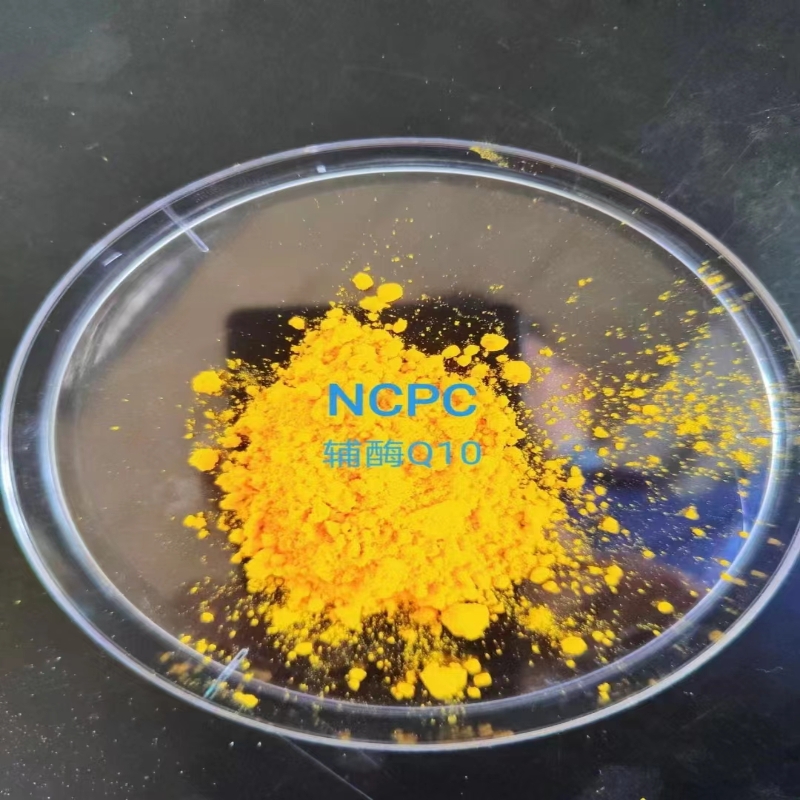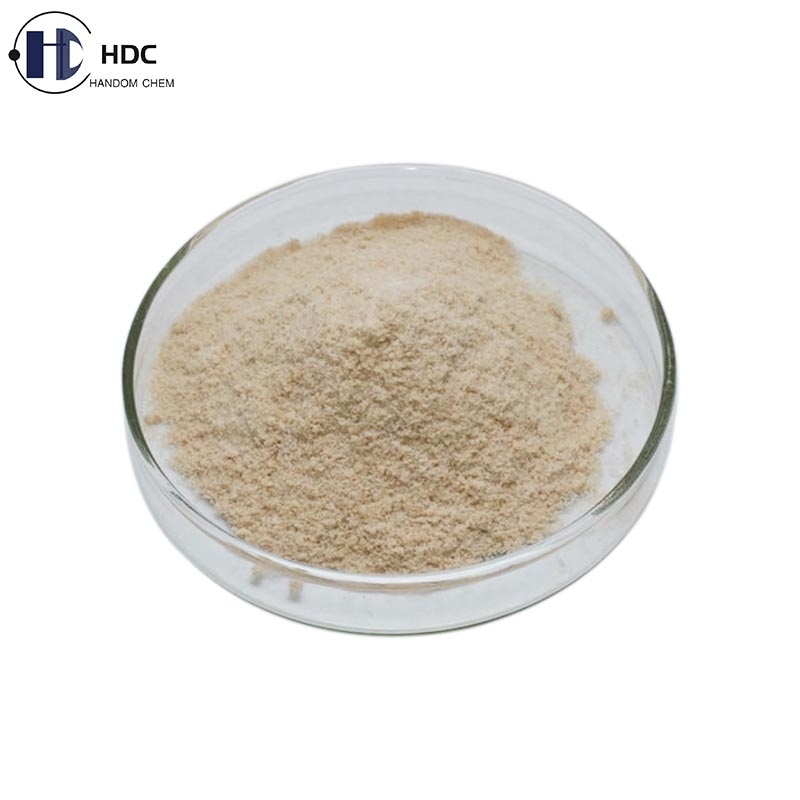[inventory] the "dairy farm" built in the fermentation tank
-
Last Update: 2016-05-31
-
Source: Internet
-
Author: User
Search more information of high quality chemicals, good prices and reliable suppliers, visit
www.echemi.com
Photo from: http:// 31, 2016 / BIOON / - the gradual maturity of synthetic biology, which enables scientists and industry to synthesize drug molecules and other high value-added compounds based on the microbial system From the concept of how to carry out large-scale gene transformation and chemical molecular synthesis path design, to the industrial application level, synthetic biology has made great achievements Now, synthetic biology seems to have begun to work in full swing For example, today's scientists have designed many synthetic biological systems, which can generate many dairy products, and even hope to replace cows in the future According to the domestication gene data and archaeological data from bison to cow, most of the modern cows can be traced back to the common ancestor of bison 10000 years ago Modern archaeological data on ancient bison fossils are very limited The area where the fossils were found is very concentrated, which is contrary to the relative dispersion of the ancient sheep fossil discovery area, which shows that the ancient bison may not have a very wide migration like the sheep The earliest fossil data should be traced to the Neolithic culture of the Toros mountains in southern Turkey The fossils were identified about 10500 years ago Research shows that areas with more diversity of fossils are often considered as the original domestication areas of animals Places with less genetic diversity of fossils often indicate that the species was domesticated in other places before being introduced to the area The large genetic diversity of fossils found in Turkey may mean that Turkey's Toros mountains may be one of the ancient bases for modern cow domestication Then, 5000 years ago, cow fossils began to appear in Mongolia, central China and Korean Peninsula In one study, scientists from Britain, France and Germany collected bone fossils of cattle found in Iran today, extracted and sequenced genetic material, and compared the genomes of ancient bison and modern cows Researchers believe that a small part of the ancient bison was domesticated and spread to Eurasia, before the generation of dairy cattle population It is estimated that the number of modern cows has reached an amazing 1.4 billion It is also pointed out that another modern cow was domesticated in the ancient Indus River Basin (about 7000 years ago) and entered southeast China The other was domesticated in Africa and spread across it Cow is the key raw material of industrial production chain Cow is an important component of modern food system Cows not only provide dairy products, but also can make clothes from cow leather, and even extract insulin from cows as human medicine Modern dairy products also depend on cows In dairy products, fresh milk has always been one of the products that people attach great importance to In addition to fresh milk, dairy products include butter, cheese, yogurt and milk powder, as well as many types of flavored milk or Shuhua milk These products also play an important role in daily life Although the consumption of goat milk has become a trend, the proportion of milk consumption is still very large Statistics show that by 2010, the per capita milk consumption of the whole human race has reached an amazing 102 kg Milk consumption has increased by 10% in the past decade In addition, the cow skin also has an important use in the leather field, which can be used to make clothing and shoes Beef bone can also be made into beef bone powder as a source of calcium In addition, beef extract can be used as the bacterial culture medium in the laboratory, and calf serum can also be used as the cell culture medium Horn can be made into handmade products, such as the old-fashioned horn chess It can be seen that cows can be used as industrial raw materials, which has an important impact on human life If you don't know that synthetic biology can produce meat from test tubes and Petri dishes, you are out In 2013, a number of companies launched the so-called "beef free Burger", that is, the meat in the burger is all synthesized in the laboratory, not from slaughtered beef The companies point out that laboratory synthesized meat can have a similar taste and nutrients to animal meat In February this year, Memphis meat products Co., Ltd in San Francisco launched a kind of "meatball" obtained by tissue culture in the laboratory Memphis meat company advertises on its official website that it can produce pork and beef from tissue culture in the laboratory They mentioned that cultured meat can be as tasty as "real." But at present, there are two problems in tissue culture of meat, one is how to effectively control the production cost, the other is how to achieve the "chewy" effect of real beef Meat produced in a dish (photo: http://guardianlv.com/) from cow hide to insulin: a culture cell line that can synthesize and utilize cattle cells Now researchers can synthesize cow hide in the laboratory However, there are more steps of baking and cutting in the synthesis process Synthetic cowhide can replace slaughtered cowhide and be used in garment industry In addition, genetically engineered collagen KOD can be used in the pharmaceutical industry KOD is an artificial protein similar to collagen, which can help human wound stop bleeding and promote tissue regeneration Due to genetic engineering modification, the artificial collagen analogue will not cause human immune response, so it is quite safe The cartilage tissue synthesized by the genetically engineered bovine geniculate cap cells can also replace the human articular cartilage Synthetic milk is now available Muufri, a bioengineering start-up, has used synthetic biology to develop a milk product that is more like a dairy product than soybeans and almonds By introducing genes related to cow milk production into yeast, the company allows yeast cells to synthesize milk ingredients produced by cows The process of production is very much like the process of biological fermentation, just like the production of antibiotics and beer By adding calcium and potassium ions, the mixture produced by fermentation can reach the composition of real "milk", and even have a similar taste The synthesis of bovine insulin has a long history At that time, Chinese scientists almost won the Nobel Prize for the artificial bovine insulin The use of bovine insulin injection to treat human diabetes is also one of the effective methods to treat diabetes MIT scientists in the United States have produced a new type of insulin, which can replace bovine insulin, stay in the blood longer, and only be activated when the blood glucose concentration is high, and even better than bovine insulin Muufri's "artificial milk" (photo: http:// has made the laboratory a food factory thanks to the development of "dairy farm" science and technology built on fermentation tanks From beef, milk, bovine insulin to bovine collagen, all dairy products can be synthesized in laboratory bacterial culture dishes and cell culture dishes However, from laboratory dishes to factory tanks, there are still a few years or even decades before humans will eventually replace a large number of dairy farms with laboratory fermentation tanks The problem now is that if we can realize the increase of conversion efficiency and the decrease of production cost, and shift from laboratory to factory, the food industry will reach a new peak in the future As early as the 1950s and 1960s, American chemists claimed that they could synthesize any taste of any food, and their food additives brought the prosperity of modern food industry However, the problem of food additives has brought a lot of potential risks to human health Although so far only a few chemical molecules have been found to cause cancer risk, more unknown risks are the biggest hidden danger Therefore, in the foreseeable future, the development of synthetic biology will bring a high prosperity to the food industry, and will greatly improve hunger and malnutrition in some areas However, the food in the fermenter will have a great impact on people from the heart How to overcome human resistance and how to strictly ensure the high safety of food will be one of the major issues to be considered in the future food industry This article is the original compilation of Biovalley, welcome to reprint! Click for authorization For more information, please download Biovalley app Original recommendation of Biovalley: cattle (Bos spp) - History of the domestic of the cost how science will make costs obsolete synthetic collagen promotes natural cloning
This article is an English version of an article which is originally in the Chinese language on echemi.com and is provided for information purposes only.
This website makes no representation or warranty of any kind, either expressed or implied, as to the accuracy, completeness ownership or reliability of
the article or any translations thereof. If you have any concerns or complaints relating to the article, please send an email, providing a detailed
description of the concern or complaint, to
service@echemi.com. A staff member will contact you within 5 working days. Once verified, infringing content
will be removed immediately.







